The Young Academy Groningen welcomes seven new members
After summer, the Young Academy Groningen will again welcome seven new members. Their research covers a wide variety of topics, ranging from speech technology to the philosophy of ethics and politics and polymer chemistry.
The seven researchers will be officially installed as members on 18 September 2024. During their five-year membership, they will collaborate with our current members in projects focusing on science policy, interdisciplinarity, public engagement and diversity and inclusion.
The new YAG members are
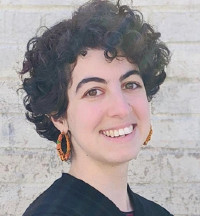
Defne Abur (Faculty of Arts)
I am an assistant professor of speech & speech technology in the Faculty of Arts and I am affiliated with the Behavioral and Cognitive Neurosciences Research School at the University of Groningen. I received a bachelor degree in engineering and biomathematics, and a doctorate in speech, language, and hearing sciences. I combine this multidisciplinary training in my research by studying speech signals (from respiration to spoken words) to better understand the processes underlying human aging and disease. In particular, my research examines speech in development and aging, in structural speech disorders (e.g., oral cancer), and in neurological disorders (e.g., Parkinson’s disease). My research team uses the mobile sound booth of the Faculty of Arts (SPRAAKLAB) to collect data as well as participate in outreach activities. My passion for implementing meaningful interdisciplinary research, considering societal inclusion in research, and conducting educational outreach, motivated me to join the Young Academy Groningen to be involved in these initiatives at a university-level.
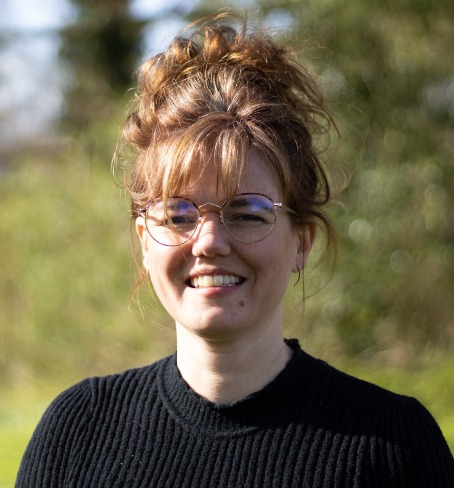
Daphne Brandenburg (Faculty of Philosophy)
I am an assistant professor in Ethics and Political Philosophy at the University of Groningen. Before joining the RUG, I was a PhD student at Radboud University and a postdoc at Macquarie University. My work critically analyses how research findings from psychology and cognitive science have bearing on ethical questions about autonomy, responsibility, and the moral emotions. Do implicit biases render us less free? When and why can children be considered responsible for what they do? And what do recent developments in affective neuroscience tell us about the value of anger? These are key questions I address in my work. Many socially relevant research questions transcend the concerns and methodology of one discipline. More cooperative work and shared expertise is needed to find comprehensive answers that are of assistance to all stakeholders. As a member of the Young Academy Groningen, I want to promote transdisciplinary research by forging connections between disciplines and the public, in order to allow them to address questions that concern them together. I also aspire to contribute to the development and enforcement of good policy in response to artificial intelligence.
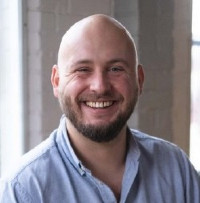
Ole Gmelin (Faculty of Behavioral and Social Sciences)
My name is Ole Gmelin, and I am an assistant professor in the Department of Theory & History of Psychology at the Faculty of Behavioral and Social Sciences. My research investigates how individuals construct a sense of identity in the context of their everyday lives and cultural conceptions of a “normal” identity. My PhD work focused on how individuals negotiate the meanings of their sexual identities in everyday conversation. Recently, I have become interested in how issues of identity and academic culture intersect. Specifically, I am studying how marginalised individuals develop researcher identities against the backdrop of disciplinary expectations for the “ideal” scientist and how researchers communicate about their identities in their scientific practice. My aim is to explore the concrete and situated mechanisms through which abstract concepts such as “social relationships” or “culture” influence identities. I am joining the Young Academy because I want to be actively involved in shaping the academic culture at the RUG, and I believe the best way to do this is to foster a sense of community and collaboration among our members. There are many great diversity and inclusion initiatives at the RUG, and I would like to help create a space for these initiatives to meet, coordinate, and organise resources.
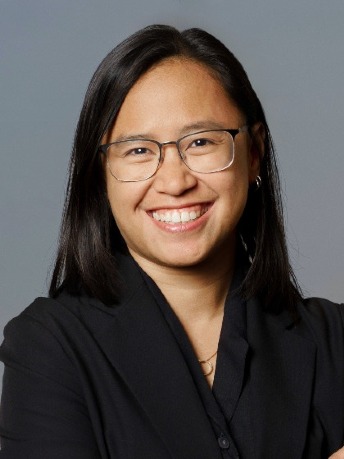
Dina Maniar (Faculty of Science and Engineering)
I am a polymer chemist and was appointed as an assistant professor with an education profile at the Zernike Institute for Advanced Materials in 2022. Having worked in this unique role, I often function at the intersection of sciences and education. As a researcher, I am passionate about addressing the pressing issues posed by extensive plastic waste and have developed my specialization in the field of sustainable polymers. My primary research revolves around the development of novel synthesis strategies for polymeric materials. A significant aspect of my research interest involves the synthesis of sustainable materials, specifically biobased and biodegradable polymers, as well as their composites. By working at the intersection of science and education, I strive to make meaningful contributions to addressing environmental issues while advancing our understanding of materials science.
Diversity and inclusion represent not just mere words to me, but essential principles that shape my academic vision. They serve as foundational pillars for fostering a secure and supportive academic setting. As a new member of the YAG, I aspire to play a more significant role where I can contribute to shaping university culture and its workforce in this direction. I believe that the exceptional academic environment fostered by YAG offers an ideal platform to pursue my vision of interdisciplinary collaboration and inclusion.
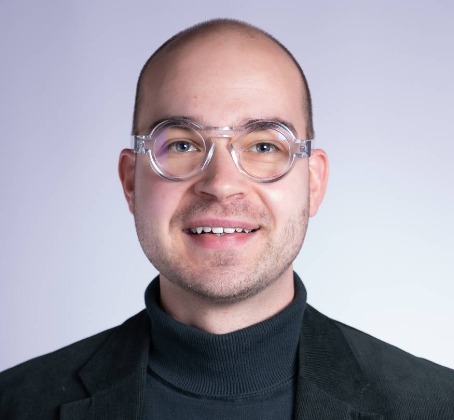
Björn Mitzinneck (Faculty of Economics and Business)
I am an associate professor in the Department of Innovation Management and Strategy at the Faculty of Economics and Business. My research focuses on organizational issues in sustainability transitions. I study both the emergence of novel organizing models in entrepreneurial ventures and strategic renewal in incumbent corporations. As a social scientist, I thereby seek to complement the other sciences in tackling the pressing sustainability challenges of our time, by generating knowledge on how we can stimulate, manage, and organize necessary change. Before joining the University of Groningen, I completed my PhD in Management and Organization at Cornell University, USA and my MPhil in Strategy, Innovation, and Organization at Cambridge University, UK. I have experienced the University of Groningen as a vibrant intellectual home, which I hope will retain its ability to attract early career researchers in the global competition for talent in uncertain times. As a member of the Young Academy Groningen, I wish to pay it forward and contribute my share to making the UG a welcoming, supportive, and inspiring home for scientific talent irrespective of personal background.
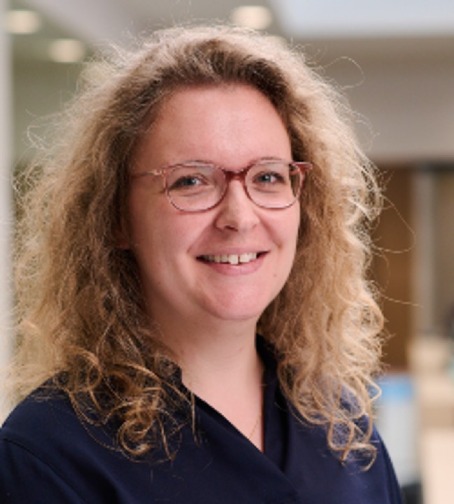
Nynke Vellinga (Faculty of Law)
Dr. Nynke Vellinga works as a postdoc researcher at the STeP research group at the Department of Transboundary Legal Studies of the Faculty of Law of the UG. In her research, Nynke focuses on new technological developments in the mobility sector, predominantly on developments concerning automated driving, and the legal challenges this poses to the existing legal framework. It therefore encompasses different legal fields including private law (who needs to pay compensation when accidents occur, for instance when an automated vehicle is hacked?) and criminal law (who is fined and punished for misconduct by the vehicle’s automated system?). During her time at the YAG, Nynke will focus on inclusivity in academia, especially for those experiencing physical health challenges. For students and academics alike, having to work around a schedule of appointments with health care providers and strict medication regimes is difficult at the best of times – let alone when confronted with the often competitive culture in academia. This requires resilience and flexibility, from the academic or student but also from the organisation. Many improvements have already been implemented throughout the years, but nevertheless there are still many steps necessary to come to a truly inclusive environment from this perspective. Herein lies an important role for the YAG, to which Nynke would like to contribute.
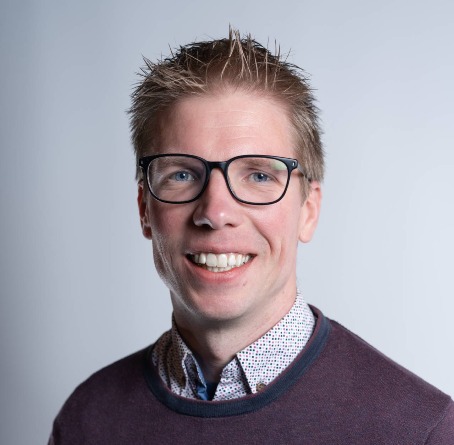
Thom de Vries (Faculty of Economics and Business)
My name is Thom de Vries, and I feel honored to be part of the Young Academy Groningen! As an Associate Professor at the Faculty of Economics and Business (department of Human Resource Management & Organizational Behavior), I currently teach in the Industrial Engineering bachelor, the Business Administration Research Master, and the Executive Master Business Administration program. The heart of my research lies in the concept of “boundary spanning.” I delve into how individuals overcome barriers—whether between teams, departments, or functions—to achieve collective and synergetic outcomes. I would like to use my expertise in this area to contribute to the YAG’s mission of promoting interdisciplinary collaboration. More specifically, I would like to help explore developing an interdisciplinary research lab that spans faculties, expertise domains, and educational programs in our University.
| Last modified: | 02 July 2024 2.31 p.m. |
More news
-
20 November 2024
Gerard van den Berg appointed as member of the Academia Europaea
Professor Gerard van den Berg had been appointed as member of the Academia Europaea, the European Academy for Sciences, Humanities and Letters.
-
18 November 2024
Bigger than femicide alone – the role of gender in violence
In the media and politics, there is rising attention to femicide — the murder of women, often by a partner or a former partner. Martina Althoff, associate professor of Criminology, welcomes this but is critical at the same time.
-
15 November 2024
Faculty of Economics and Business and Dutch Central Bank Announce New "Klaas Knot Lecture Series"
The Faculty of Economics and Business (FEB) of the University of Groningen and De Nederlandsche Bank (DNB) are pleased to announce the launch of the annual “Klaas Knot Lecture Series” on international economic policy.
